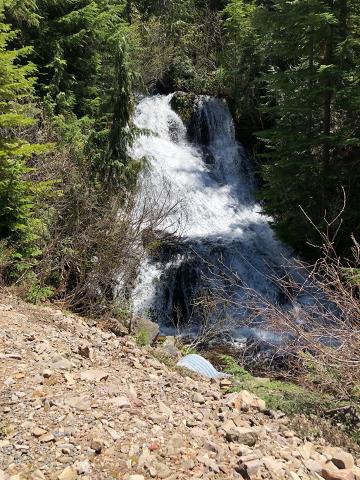
Looking for more? Check out these great reads from the ExcelinEd blog!
About Credentials Matter
Credentials Matter is an ongoing research partnership between ExcelinEd and Burning Glass Technologies designed to shed light on the landscape of industry credential data collection and alignment across the country. The project provides insight into how industry credentials earned by high school students align with workforce demand in each state to inform education system improvements and state data collection practices. Visit ExcelinEd.org/CredentialsMatter for more information.
Credentials Matter was made possible by a grant from Carnegie Corporation of New York. The statements made and views expressed are solely the responsibility of the authors.
USDA Radio Newsline
Thursday, June 6th Stories:
The District of Columbia (DC) Government won't release 1 million square feet of abandoned school buildings to these charter schools. Hear their stories in this short video that describes the plight of thousands of low-income minority DC students. Please join CER in supporting the DC Association of Chartered Public Schools in their fight to End the List! Sign up now and add your name to the cause to bring every DC child a world-class education.
Founded in 1993, the Center for Education Reform aims to expand educational opportunities that lead to improved economic outcomes for all Americans — particularly our youth — ensuring that conditions are ripe for innovation, freedom and flexibility throughout U.S. education.
===============
Press Release
Secretary Perdue Statement on President Trump’s Signing of Disaster Aid Bill
(Washington, D.C., June 6, 2019) – U.S. Secretary of Agriculture Sonny Perdue today commended President Trump’s signing of the disaster relief bill that will provide $19 billion in assistance to states and territories hit by flooding, hurricanes, wildfires and other natural disasters.
“Congress provided much needed resources to assist farmers, ranchers and producers dealing with extensive damage to their operations caused by natural disasters,” said Secretary Perdue. “President Trump is committed to helping America’s farmers get back on their feet following recent natural disasters. I thank him for his leadership and I thank the members of Congress from Georgia, Florida and the Carolinas who fought so hard to make sure this bill passed. We look forward to implementing this disaster aid package in a fair way and working with state leadership to identify where the true losses and needs are to best serve our fellow Americans in need of a helping hand.”
eliance on Foreign Mines an Environmental and National Security Risk
By Michael Stumo
Americans recently woke up to the news that China is threatening to cut off supplies of “rare earth” metals to the United States. It’s a troubling situation. But such alarming headlines could finally motivate Washington to rectify a longstanding problem—America’s growing dependence on imported metals and minerals.
It may all sound a bit obscure. But these resources provide the building blocks for everything from electric motors to medical equipment. And the Commerce Department just warned that the United States has become “heavily dependent” on foreign sources for 31 of the 35 minerals designated as “critical” by the Department of the Interior. And 14 of the minerals considered “critical” by the Department of Defense are only available overseas.
We use many of these minerals every day. The average smartphone contains copper, gold, platinum, silver, graphite, and tin oxide. Solar panels require gold and silver. Electric vehicles need cobalt, zinc, and lithium. And wind turbines use copper and molybdenum.
Fortunately, America possesses an estimated $6.2 trillion in mineral reserves—and our reliance on China and other countries shouldn’t even be happening. America’s mining sector also uses more environmentally responsible practices, and under more stringent regulation, than competitors in China, Kazakhstan, Turkey, and many other countries.
China also utilizes subsidies for state-influenced companies, shoddy environmental practices, and market manipulation to drive U.S. competitors from the market. Beijing can drive prices down to put others out of business, then restrict supplies and control prices at will. As a result, less than half of the minerals used by America's manufacturers are actually sourced domestically. Back in 2014, a survey found that 90 percent of U.S. manufacturing executives were concerned about obtaining needed minerals in a timely manner. The problem has only grown worse.
In 2010, Beijing used market control as a weapon, cutting off rare earth mineral shipments to Japan. And the World Trade Organization has ruled that China gives preferences for mineral supplies to its own state-owned manufacturers while discriminating against the U.S. and other countries.
Complicating matters is that it now takes as long as seven to 10 years for a U.S. mining operation to get the permits needed to launch new operations. In contrast, mine permitting in countries like Australia and Canada—with comparable environmental standards—takes only two to three years. Washington must find ways to streamline this process in order to begin responsibly extracting the key resources needed for the products we use every day.
If U.S. manufacturers are to supply consumers with American-made products, they'll need more timely access to reliable mineral sources. But many of the nation's existing mines are reaching the end of their useful lifespan. Washington urgently needs to update rules and incentives for faster, more responsible, and more innovative extraction of mineral resources that benefit domestic workers, companies, and national security.
Michael Stumo is CEO of the Coalition for a Prosperous America.